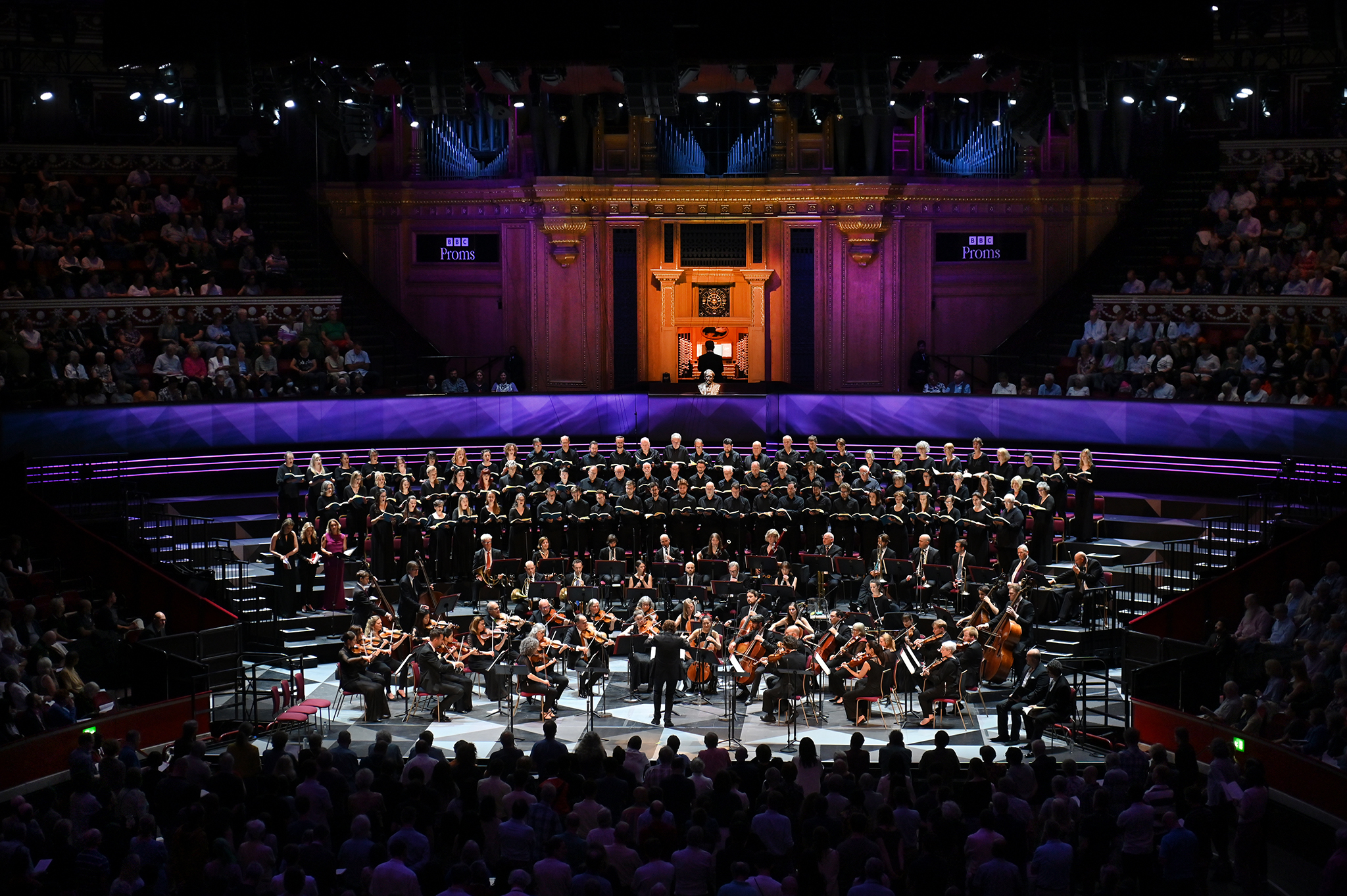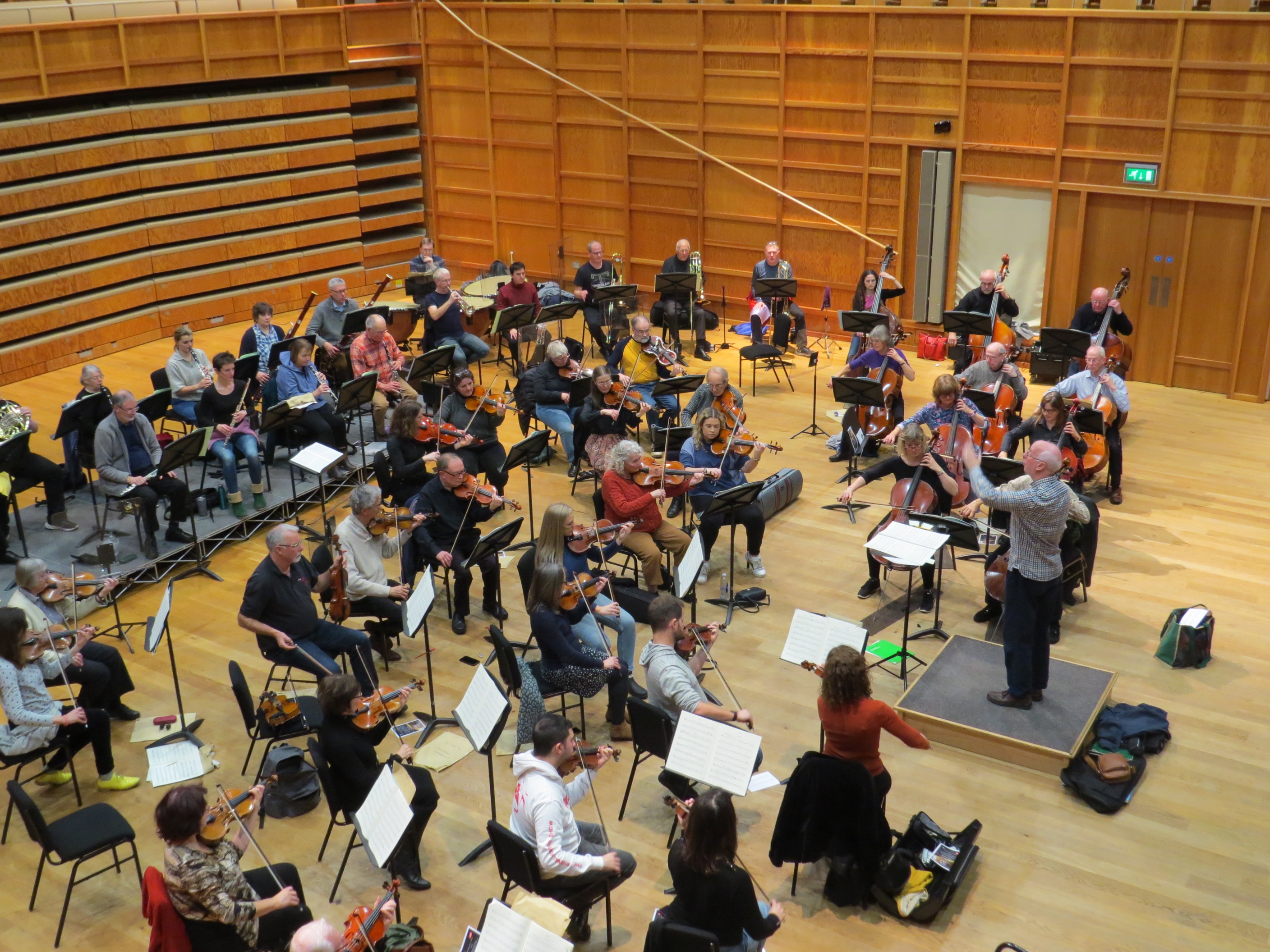CHATTERING BIRDS
ISANIE PERCUSSION DUO
LEONIE KLEIN
ISAO NAKAMURA
WERGO WER 7403 2 74’08
All manner of percussion instruments are employed here – tuned and untuned, wooden and metal (and bird whistles!) In writing solely for percussion, composers are limited, but at the same time, liberated to explore every possible potential of the instrument. Dialogues between two contrasting sound sources are common, together with free explorations of timbre and dynamic, alongside an obvious focus on rhythm. This is music which demands a certain type of listening – an open minded approach, ready to follow the composers and performers as they take us on a journey into music which is intimate and, at times, extrovert, wide-ranging and imaginative. As might be expected from a Wergo release one of the compositions here also includes a part for tape.
ENNO POPPE – PROZESSION
ENSEMBLE NIKEL
ENSEMBLE MUSIKFABRIK
ENNO POPPE, conductor
WERGO WER 7401 2 68’05
Ensemble Nikel are a German quartet who use ‘pop’ instruments in contemporary ‘classical’ music. Electric guitars, drums and vintage synthesizers can be heard here bringing their distinctive sounds together in new ways. Ensemble musikfabrik are also committed to performing contemporary music, with more conventional orchestral instruments.
Enno Poppe is a leading contemporary German composer, particularly drawn to these sounds which are used to good effect here in two of his compositions, the three movement Fleisch and the extended through-composed work, Prozession. Two very different structures help to highlight the range of this composer’s music.
20TH CENTURY FOXTROTS – 5
GOTTLIEB WALLISCH, piano
GRAND PIANO GP922 67’45
This series continues to delight and intrigue me. In this volume we have a selection of light piano music from Switzerland, mostly from the 1920s and 30s, with a few more recent pieces. Here are dances in a variety of styles including influences from the tango and blues. I was surprised to hear one of the tracks (Burkhard’s Slow-Fox) sounding rather like Fats Waller’s Ain’t Misbehavin’…The selection also includes the extended Jazz-Sonatine by Zbinden.
Sensitive performances from Gottlieb Wallisch bring this neglected repertoire to life once
more.
CHARLES IVES – COMPLETE SETS FOR CHAMBER ORCHESTRA
ORCHESTRA NEW ENGLAND
JAMES SINCLAIR, conductor
NAXOS 8.559917 68’15
Despite the composer being dead for nearly 70 years this music still sounds fresh and innovative. These sets of pieces are largely arrangements of Ives’ songs with different instrumental colours and some slight alterations to original material. Prefiguring musique concrete and the mash-up of today this music brilliantly combines and reworks a wide range of material with juxtapositions of rhythm and style which is exciting and engrossing. The CD includes world premiere recordings of several of the sets.
GEORGE ANTHEIL – VIOLIN SONATAS 1-4
TIANWA YANG, violin
NICHOLAS RIMMER, piano, drums
NAXOS 8.559937 68’33
As above, this early / mid twentieth century music still sounds contemporary and lives again in these committed performances. It is good to hear the diversity of compositional technique in this chronological set. The first three sonatas were written within two years of each other in the 1920s and, amongst other things, show some similarities with Stravinsky’s percussive writing. The fourth sonata comes from a further twenty years on.
A very welcome release.
THE SYNTHETISTS REVISITED
ROYAL BAND OF THE BELGIAN AIR FORCE
MATTY CILISSEN, conductor
NAXOS 8.579135 73’55
This is a rather intriguing release, highlighting music written in the 1920s by members of a Belgian composers’ collective – Les Synthetistes – who pursued a deliberately contemporary style in contrast to the prevailing Romanticism. They wrote for wind band as they had no access to a symphony orchestra, hence the forces (!) used on this recording. Released in the Naxos Wind Band Classics series.
NIGEL CLARKE – THE PROPHECIES OF MERLIN
PETER SHEPPARD SKAEVED, violin
ORF VIENNA RADIO SYMPHONY ORCHESTRA
NEIL THOMSON, conductor
NAXOS 8.579127 65’05
Described as a symphony for violin and orchestra, this five movement work by British composer Nigel Clarke is a highly evocative piece which effectively transports the listener to each of five different mystical locations. At times energetic, at others more passive this really moved me. Great performances and production.
A CELEBRATION OF PAUL READE
PHILIPPA DAVIES, flute
HELEN TUNSTALL, harp
PUMEZA MATSHIKIZA, soprano
LAURENCE PERKINS, bassoon
LONDON WINDS
ENGLISH CHAMBER ORCHESTRA
ROBIN O’NEILL, conductor
SIGNUM SIGCD758 73’53
The well-loved Suite from ‘The Victorian Kitchen Garden’ opens this CD which collects together a number of compositions by Liverpudlian, Paul Reade. Although his name is perhaps not so well known his compositions are numerous, ranging from large scale concert works including concertos for flute and bassoon, songs for voice and orchestra, choral works, ballets and chamber music. He wrote many themes and scores for television including The Antiques Roadshow and for adaptations of Great Expectations and Jane Eyre. He was the pianist and songwriter for BBC’s Play School, for which he also wrote the signature tune. He composed music for other children’s programmes, including Crystal Tipps and Alastair, Ludwig and The Flumps.
Amongst other tracks this very welcome CD includes Chants du Roussillon – a set of five Catalonian Songs for soprano and orchestra, Serenata for Wind Sextet and the Concerto for Flute & String orchestra. Excellent note, including those written by flautist Philippa Davies, Paul’s widow, provide additional useful background to the composer and his music. Perhaps a companion volume of more of his television work will follow?
ASTOR PIAZZOLLA – ACONCAGUA, OBLIVION, ADIOS NONINO, TANGAZO
CESARE CHIACCHIARETTA, bandoneon
FILIPPO ARLIA, piano & conductor
ORCHESTRA FILARMONICA DELLA CALABRIA
DYNAMIC CDS7985 61’32
The extended Aconcagua, a concerto for bandoneon, strings and timpani, makes up a large part of this programme of varied works by the celebrated composer of Argentinian tango. A selection of familiar and less so, there are some fabulous performances here, including the extrovert pianism of the closing track, Zita.
DANIEL BJARNASON – FROM EARTH TO ETHER
JAKOB KULLBERG, cello
KARIN TORBJORNSDOTTIR, mezzo-soprano
AARHUS SYMPHONY ORCHESTRA
DANIEL BJARNASON, conductor
DACAPO 8.224746 46’01
This CD brings world premiere recordings of performances, under Bjarnason’s own baton, of three recent works by the Icelandic composer. The first two are meditative chamber and orchestral works, Bow to String and Over Light Earth. Both of these are inspired by early twentieth century abstract art by Rothko and Pollock. The third piece, Larkin Songs, here sees the orchestra joined by voice in settings of three poems by Philip Larkin.
CLAUDIO SANTORO – SYMPHONY NO 8, CELLO CONCERTO
MARINA MARTINS, cello
DENISE DE FREITAS, mezzo-soprano
GOIAS PHILHARMONIC ORCHESTRA
NEIL THOMSON, conductor
NAXOS 8.574410 66’55
I knew nothing of Santoro’s music until I began listening to these releases in the Naxos Music of Brazil series. Recently a number of his Symphonies and other works have been released and here No 8, from 1963, is placed alongside the slightly earlier Cello Concerto and three other works from the same decade. Another informative and enjoyable production.
SP


 The third concert in this 34th Annual Series forms part of a special pairing of two consecutive concerts featuring two different current organists from the same cathedral. Joseph Beech, sub-organist at Durham gave a brilliant recital and next week he will be followed by his ‘boss’!
The third concert in this 34th Annual Series forms part of a special pairing of two consecutive concerts featuring two different current organists from the same cathedral. Joseph Beech, sub-organist at Durham gave a brilliant recital and next week he will be followed by his ‘boss’!
